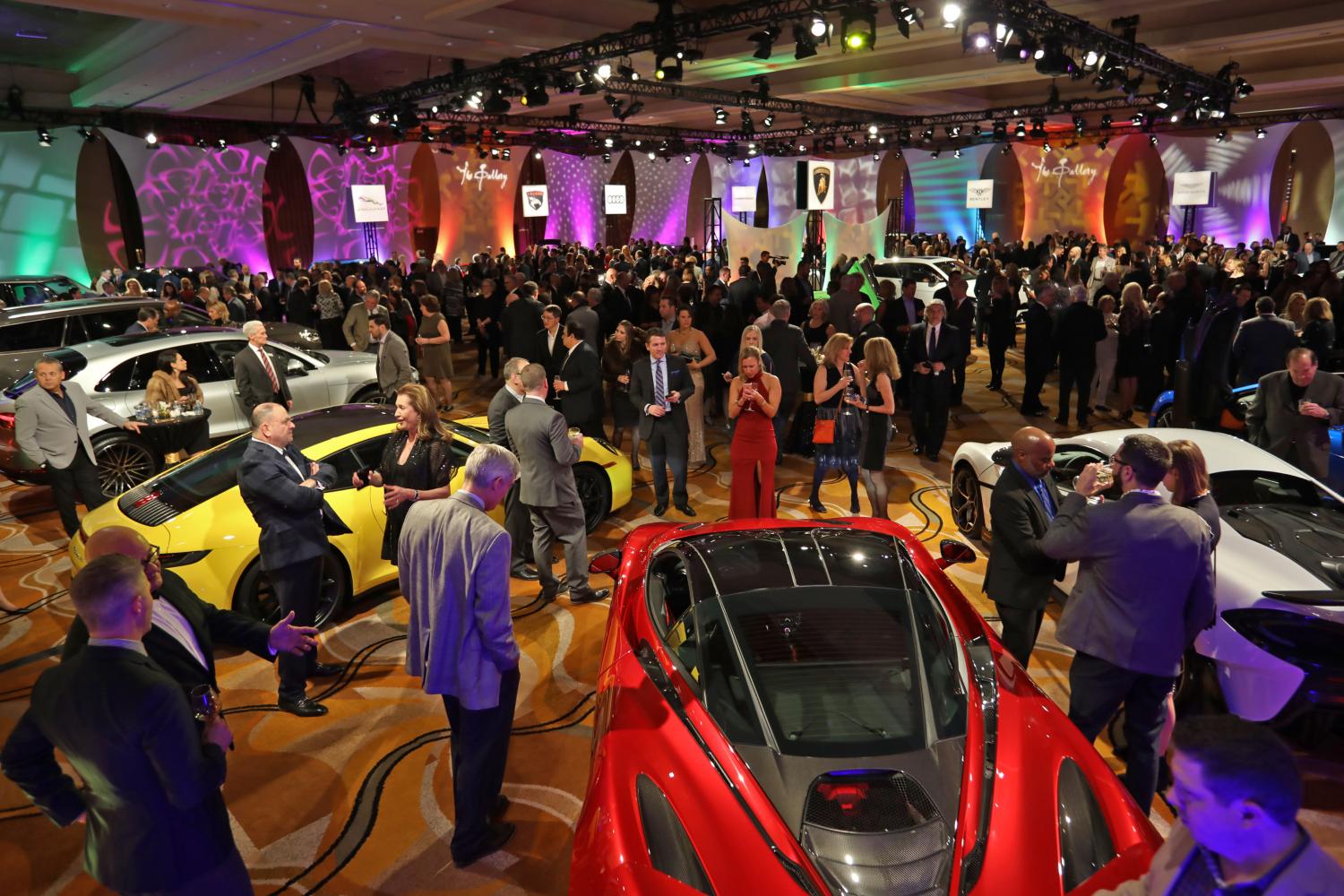
The world’s top automotive brands have convened in Detroit’s Cobo Center this week for the North American International Auto Show (NAIAS).
While the focus will largely be on new vehicle and concept unveilings until the show’s conclusion on January 27, the 2019 NAIAS is taking place after another year full of major investments and moonshot-like commitments by legacy automakers to expand their offerings of electric vehicles (EVs) in the coming decades.
But beyond cars, how are the world’s biggest automakers framing their sustainability and corporate social responsibility (CSR) goals?
Here is a breakdown of the latest sustainability and electrification developments from top automakers that are showcasing their vehicles at the 2019 NAIAS in Detroit.
Ford Motor Company
Three years ago, Ford Motor Company took its first step toward EV development after announcing it would invest $4.5 billion in EV production and introduce 13 new models by 2020. Just over two years later, the Dearborn, Michigan, company announced it would significantly up both of these totals to $11 billion in investments and 40 hybrid and fully electrified vehicles by 2022.According to its 2017-2018 CSR report, Ford has also begun experimenting with renewable, plant-based materials, including tomato skin, bamboo and algae, in an effort to replace petroleum-based plastics. The company has already been successful in developing and implementing soybean-based foam in its vehicles.
Ford is also making improvements to its manufacturing facilities by continuing to follow past commitments to reduce both water use per vehicle produced by 30 percent by 2020 and operational greenhouse gas emissions by 30 percent by 2025.
Toyota Motor Company
Toyota Motor Company pioneered one of the first widely adopted hybrid vehicles with its Prius line in 1997. Today, Toyota is applying the same ambition towards sustainability with its Environmental Challenge 2050.Under its 2050 strategy, the company has promised to eliminate most, if not all, carbon dioxide emissions in the company’s new vehicles, facilities and manufacturing processes no more than 31 years from now.
Nissan Motor Company
Despite offering one of the best-selling electric cars in the world, Nissan Motor Company’s foray into the EV market has not branched out much beyond its Leaf series.In late 2017, however, the Japanese automaker announced that it intends to build 12 new zero-emission vehicles through its partnership with Mitsubishi and Renault by 2022. In doing so, the Mitsubishi-Nissan-Renault alliance intends to make a €10 billion ($11.5 billion) investment to develop new powertrains and electric technologies.
Beyond investment, Nissan has also developed Nissan Sustainability 2022, which the company says is centered around “realizing a zero-emission, zero-fatality society” through the elimination of any potential carbon dioxide emissions and fatalities caused by its new vehicles.
Fiat Chrysler Automobiles
In June 2018, Fiat Chrysler Automobiles (FCA) announced it will develop 12 battery-electric, plug-in and hybrid propulsion systems across 30 different lines of vehicles by 2022.While the company is estimating that models with “heavy electrification” will comprise just 15 to 20 percent of sales, FCA has committed itself to sustainability by aligning with 11 United Nations Sustainable Development Goals (SDGs). In doing so, the Italian and American automaker is aiming to lessen the environmental impact across the design, sales, production, usage and end-of-life cycles of its vehicles.
General Motors
General Motors (GM) laid the groundwork for its plunge into electric vehicles through a press release in October 2017. Proclaiming that the “future is all-electric,” GM revealed it will be developing 20 new all-electric vehicles by 2023 while also maintaining its commitment to refinement of the internal combustion engine.Named one of CR Magazine’s 100 Best Corporate Citizens of 2018, GM says it is making safety and zero emissions the focus of its sustainability efforts while also maintaining a broad alignment with all 17 of the U.N. SDGs across its global operations.
Volkswagen AG
Volkswagen AG has given itself one of the most rigorous deadlines to adopt a fully electrified lineup after it announced that it will gradually phase out the internal combustion engine following the release of its next generation of gasoline and diesel cars in 2026. After tens of billions of dollars in investments, Germany’s largest automaker has positioned itself to become a major player in the EV market within the next decade.In addition to its adoption of EVs, Volkswagen is also in the middle of reinventing itself as a corporate citizen following its 2015 emissions scandal.
In 2016, Volkswagen established TOGETHER — Strategy 2025 in order to better its customer and employee relations, competitive profitability and impact on the environment. And the company’s shift towards electrifying its entire portfolio by 2030 will undoubtedly play a major role in achieving these objectives.
Honda Motor Company
Honda Motor Company has dabbled in hybrid vehicles in past years, but the company has remained noticeably silent on any plans for a broad adoption of EV technology.Despite its lack of EVs, the Japanese company, according to its 2018 sustainability report, still has lofty sustainability goals like its competitors, including reducing carbon dioxide emissions in its products by 30 percent by 2020. As part of its 2030 Vision plan, Honda will also aim to electrify two-thirds of all automobiles by 2030 with a broader goal of halving company-wide carbon emissions measured against a “fiscal year 2000 baseline.”
Image credit: NAIAS 2019














